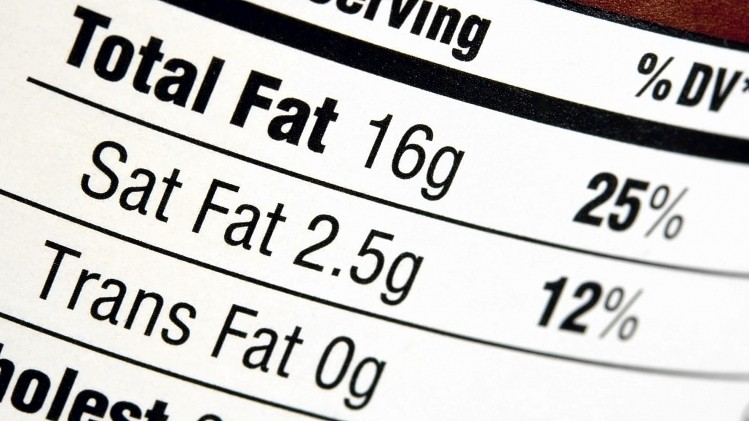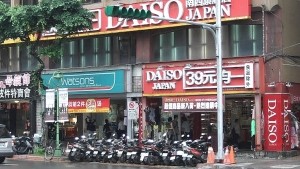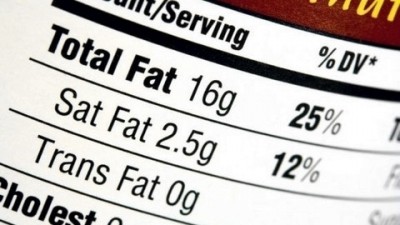Far East digest
Taiwan gives its health guidelines some new teeth

Tougher food labelling guidelines are being implemented in Taiwan, with the country’s food regulator targeting products containing high amounts of trans fats, sugar, potential allergens and genetically modified foods.
Under the new rules, which were issued by Taiwan’s Food and Drug Administration, products must contain labelling to show the exact amounts of trans-fatty acids and sugar per serving under certain conditions.
Taiwanese diets increasingly feature more Western-style processed foods, though there have been no policies directed towards curbing trans fats.
The labelling of these and other foods will become mandatory when they exceed the limits US and South Korean health standards.
Separately, a leading politician indicated that future revisions to the country’s food safety laws could be on the horizon.
These, according to Alicia Wang, could include measures to prevent companies from using hydrogenated oils to produce trans-fatty acids in food, with fines of NTD$3m (US$97,000) on violations.
Import disqualifications rise sharply following inspection regime change
Food safety officials have noted a sharp increase in the number of imports that failed to meet Taiwan FDA’s standards so far this year.
According to official statistics, imported food utensils formed the top category of substandard imports, followed by vegetables and tea leaves.
The figures were based on checks made to 7.5% of all import batches—equivalent to almost 19,000 of over 250,000 consignments.
Of these, 429 batches were found to be substandard, translating into a rejection rate of 2.26%—a sharp increase from 1.28% in the same period last year.
The 145 product lines of disqualified utensils were mostly polypropylene (PP) utensils manufactured in Japan.
Japanese discounter Daiso had a significantly high disqualification rate for products it imported. The chain is Taiwan’s biggest importer of PP utensils.
“More than 6,000 batches of PP utensils were imported from Japan in the past six months, of which 5,583 batches were imported by Daiso. Of the 235 batches of Daiso products tested by the FDA during the period, 64—or 19.7%—failed to meet national standards,” said Chen Ching-yu, a food inspector.
Vegetables—mainly green onions from Japan and green asparagus from Thailand—tea leaves mainly from Vietnam and India; fruits including satsumas from Japan and cherries from the US; and medicinal foods, such as Chinese yam and chrysanthemums from China, were among the main substandard food categories.
Most produce was rejected because of excessive levels of pesticide residues, with the increase in disqualification attributed to new batch-by-batch inspections in Taiwan.
Connell Bros takes on FMC account
Connell Brothers, Asia-Pacific’s biggest specialty ingredients distributor, will represent Pennsylvania-based FMC in Taiwan from August.
The distributor will market FMC’s lines that include the Avicel family of cellulose and cellulose gels, as well as its Natural Colour series and naturally derived hydrocolloids.
"We have been expanding our partnership with FMC in food and nutrition as well as pharmaceutical markets in Asia," said Azita Owlia, Connell Brothers’ regional head.
Stewart Campbell, Owlia’s counterpart at FMC, added: ”CBC has been a strategic partner to our FMC Health & Nutrition business in many countries around the world for many years.”
BK black burgers came from Angry Whopper idea
Though Burger King Japan has carved out a reputation for its sometimes wacky menu items, the company comes up with all its new concepts almost entirely in house, rather than using a branding or ad agency, as might be expected.
Speaking to Ad Age, Masanori Tatsuiwa, Burger King Japan's general manager for business management, said the company did not have a sizeable advertising budget available when it came up with the Aka Samurai.
The burger, which is currently being served at the chain’s 93 stores in Japan, features a red bun, red cheese and red hot sauce.
It follows in the footsteps of Burger King’s black burgers, with jet-black buns and black cheese, which caused a global stir when they were launched as a limited edition four years ago, and have made a return each year.
“Burger King is not big compared to the competitor companies in Japan. McDonald's has about 3,000 restaurants in Japan. The local MOS Burger chain has almost 1,400 restaurants, said Tatsuiwa, who directs a five-person marketing team.
“We were thinking about the Burger King ‘Angry Whopper’, [a jalapeno-laden version of the regular Whopper), that launched in some markets. We thought making it red would make people curious and express the hot taste.”
Other Burger King territories have followed the Japanese lead, including Singapore with black and white Whoppers, and the black “Ninja” Whopper in Malaysia.
Scottish goods a hit for Japanese consumers
Scottish food and drink exports to Japan have grown by 10% in a year. Official figures, released by the Scottish Government, also show these exports have surged by 74% since 2007.
A growing appetite for Scotch whisky and cereal goods in Japan has fuelled growth in the value of exports from Scotland, which were worth £90.3m (US$140m) in 2014, compared with £81.9m the previous year.
"We want more of our friends in Japan to enjoy and experience Scotland’s fantastic larder,” said one of Scotland’s ministers on a visit to Nagasaki.












